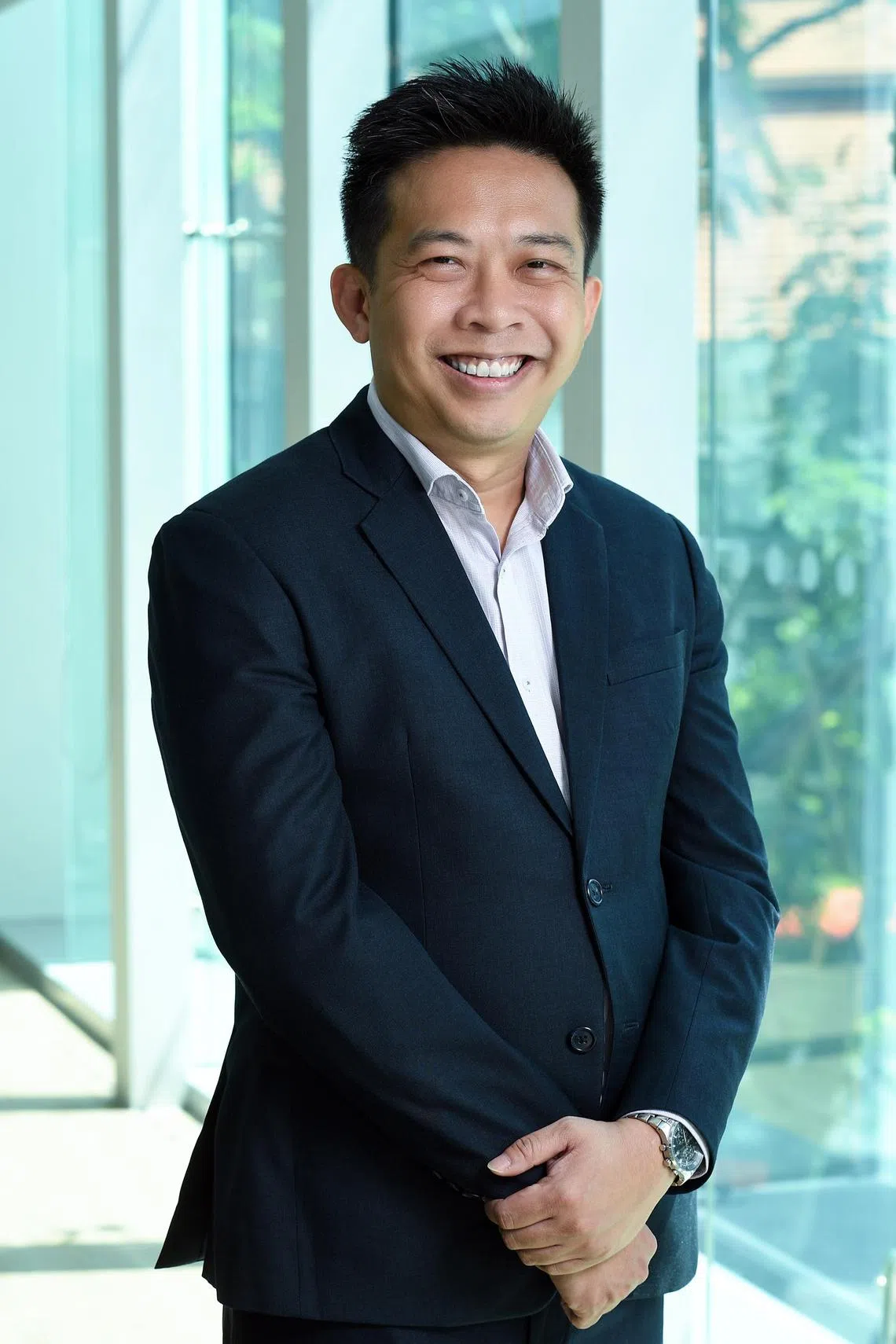When #opentowork isn’t working: As job hunting gets harder, experts say do this instead
Sign up now: Get tips on how to grow your career and money

Six in 10 Singapore workers say their job search has become more difficult over the past year.
PHOTO: PIXABAY
SINGAPORE – If you are looking for a new role and finding it hard to score an interview, you are not alone.
Six in 10 Singapore workers say their job search has become more difficult over the past year, according to new data from recruitment and professional network platform LinkedIn released on Jan 16.
This is higher than the global average of five in 10.
“The research results reflect the shifting market conditions and a sluggish labour market, as well as professionals’ sentiments towards job-seeking,” says Ms Feon Ang, managing director of LinkedIn Asia-Pacific. LinkedIn has more than four million members in Singapore.
LinkedIn’s latest jobs report polled 1,001 employed respondents and 500 human resources and talent acquisition professionals based in Singapore between Nov 27 and Dec 13. It is part of a global survey which spanned 15 other countries, including Australia, India and Indonesia.
The data shows that professionals here spend one to two hours weekly on average on job hunting. Over half apply for up to five jobs a week. Millennials and Gen Zers can submit as many as eight applications weekly.
Nearly half (47 per cent) of Singapore-based respondents say they are applying to more jobs but receiving fewer callbacks. Almost one in two (48 per cent) have also been ghosted by recruiters, which makes it difficult for them to understand why they were rejected.
A digital marketing professional in her 30s says she tracked her job applications from January to December 2024 on an Excel sheet. She secured only three interviews after sending about 100 applications and has not received a single job offer.
The trouble is: For every job she applies for on LinkedIn, she is just one of hundreds who also did.
A career coach she saw advised her on her resume and told her to keep trying, which she felt was not particularly helpful. She attended a career fair recently in the hope of meeting hiring managers face to face, but was disappointed when she was directed, again, to apply online.
“It’s very competitive. Everyone’s playing a numbers game, and you’re not sure if an actual human will look at your CV (curriculum vitae) and take action,” says the job seeker, who quit her job in the third quarter of 2024 for personal reasons. She declined to be named.
Older workers are also feeling the pinch.
A 50-year-old marketing and business development professional, who has been actively looking for a job since 2024 and declined to be named, says: “Despite applying to relevant roles that match my skills, I noticed a significant drop in responses compared with previous job hunts. Hiring managers often emphasise niche skills or industry-specific experience that may not align with my past roles, even though I believe my transferable skills are strong.”
His last full-time position in a communications role ended in 2022 when he was retrenched, and he has been freelancing in various roles since. He has attended various courses, a mentorship programme and boot camps, to no avail, he says.
Despite such discouraging experiences, LinkedIn’s survey estimates that over two-thirds (68 per cent) of the workforce are still planning to change jobs in 2025.
Human resources managers say job seekers lack skills
While job seekers anguish over the lack of opportunities, half of hiring professionals are lamenting the lack of qualified candidates, according to LinkedIn research. Almost eight in 10 say there is a skills mismatch between what professionals have and what companies need.
Hiring teams say their top challenges are finding candidates with the right soft skills and technical skills.
Global hiring is also changing the game, making the talent landscape more competitive, notes Ms Angel Kilian, who runs private career coaching consultancy Career inFocus.
While the job search process is multilayered, what is clear is that artificial intelligence (AI) is driving the next wave of change, says Ms Ang. By 2030, 70 per cent of the skills used in most jobs will change, accelerated by AI.
“This rapid evolution of required skills has created a skills gap that may be challenging to bridge in the short term, as people need time to develop new skills and build emerging capabilities,” she explains.
The good news is, LinkedIn’s research shows that 75 per cent of HR and talent leaders plan to hire more in 2025 than they did in 2024.
Ms Ang advises job seekers to go for quality over mass-applying for roles, and to check out the platform’s latest Jobs On The Rise report ( str.sg/xTjF
LinkedIn is also rolling out a new job match feature that shows candidates how their skills and experience line up with open positions.

By 2030, 70 per cent of the skills used in most jobs will change, accelerated by AI, says Ms Feon Ang.
PHOTO: LINKEDIN
Meanwhile, job seekers like Mr Walter Navarro, 52, who started his job search earlier in January, recognise that the journey requires patience and determination.
The veteran communications and marketing professional in the hospitality and travel industry knows he is competing with candidates around the same age as his 23-year-old daughter, who works in marketing and communications in a different industry.
The reality is that his extensive experience may not always be seen as an advantage in a fast-paced environment where professionals have to be proficient with the latest technology and platforms, he admits.
Besides striving to be an effective leader and doing quality work, his strategy has been to cultivate connections throughout his career.
“I am a strong believer in the adage that as professionals, ‘our network is our net worth’,” he says.
Does that still hold true? Headhunters and career coaches say it does.
Too many job seekers focus on the online application process when it is the human relationships they should cultivate, notes Ms Kilian.
“At its core, hiring is relationship-driven. I’ve seen great candidates apply online and never have their applications picked up. However, when they leverage offline methods like building relationships through LinkedIn, sharing a portfolio or pitching to decision-makers directly, their chances of being picked for interviews go up significantly,” she says.
Ms Kilian, headhunter James Koh and LinkedIn’s Ms Feon Ang offer these tips to job seekers wanting to differentiate themselves from the pack.

Career coach Angel Kilian says many job seekers focus on the online application process when it is the human relationships they should cultivate.
PHOTO: COURTESY OF ANGEL KILIAN
Highlight your achievements
Recruiters are not assessing you based on your job description but what you have achieved in your job, says Mr Koh, who runs executive search firm James Kenneth Koh. He was an advertising professional for seven years and is a 25-year veteran of the executive search industry.
Showcase achievements beyond your role, such as bringing in new clients as a junior manager, awards and media coverage, and social causes you are passionate about.
Ms Kilian also suggests creating a digital portfolio or video resume to showcase your work proactively.
It is also important to update your LinkedIn profile as it is often the recruiter’s first impression of you. Candidates who list at least five skills see 5.6 times more profile views and 24 times more messages from recruiters, Ms Ang says.
You can make use of LinkedIn’s AI-driven tools that offer personalised profile writing suggestions and its AI-powered messaging assistant, but make sure to edit the results to make them true to your values, she adds.
Seek a referral
Ms Kilian suggests connecting with employees in your target company through LinkedIn to better understand their career experiences. If you hit it off with them, see if they would be willing to offer a referral, and customise a short e-mail for them to pass along to the hiring manager on why you would be great for the role.
“Most companies prioritise referrals and this can offer a fast-track opportunity to the application stage,” she says.

Headhunter James Koh, founder of James Kenneth Koh, an executive search firm, suggests that job seekers showcase achievements beyond their role, such as awards, media coverage and social causes.
PHOTO: COURTESY OF JAMES KOH
Build your personal brand
Ninety per cent of recruiters look at a candidate’s LinkedIn profile during the hiring process, says Ms Kilian.
“Our online branding determines how valuable we might be as potential candidates. When our Linkedin profiles are inactive or incomplete, it can often affect our perceived value. Ensure that your top achievements in your roles are clearly communicated,” she adds.
Avoid job hopping
Mr Koh has noticed that some mid-level candidates now change jobs every six months to a year.
“If you’re changing jobs too often, I’ll notice, and I won’t prioritise reaching out to you when looking for top talent. Enough stability is key, based on the level and what the role is,” he says.
Be yourself
If you are hoping to be headhunted, know that such recruiters look beyond technical skills, says Mr Koh, an advertising veteran. He recently authored Hire Power, a book on the talent sourcing industry published by Epigram Books, which costs $34.90 at bookshops.
“We assess the ‘fit’ between the candidate and the company (cultural fit), the candidate and the role (work fit), and the candidate and the manager or team (chemistry fit),” he explains.
Headhunters may ask in-depth questions about your life outside work to evaluate how well you will align with the job and company, so it is important to be truthful, he adds.
Think global
Make yourself more marketable globally by participating in regional or global projects and case studies within your company, Mr Koh suggests.
Language skills can open doors to opportunities in global markets, as can expertise in niche areas in high demand globally, such as sustainability.
You can also pen thought leadership articles related to your profession on platforms like LinkedIn, Medium or other industry-specific sites.
“Sharing valuable insights can enhance your reputation and visibility within your field,” he says.
Evolving gig economy means workers should think like entrepreneurs
Sixty per cent of companies in Singapore use contingent workers, commonly known as gig workers, to fill specialised roles and address skill shortages.
Their numbers are set to grow as businesses recognise the value of having a flexible workforce without longer-term commitments, says Ms Eleanor Tan, a consultant for commerce contract at Robert Walters Singapore, a headhunting and recruitment multinational.
This is especially so in industries such as technology, logistics and creative services where demand fluctuates.
The global gig economy is expected to triple over the next eight years from US$556.7 billion (S$761 billion) in 2024 to US$1,847 billion in 2032, according to a November 2024 article on the World Economic Forum’s website.
While the term “gig worker” brings to mind platform workers like private-hire drivers and freelance delivery workers, which number about 70,500 here, the contingent worker economy encompasses many different types of jobs and their true numbers are not available.
Ms Janet Chew, 54, for instance, has been working as a freelance care professional since quitting her administrative job in June 2024. She enrolled in a therapist assistant course at NTUC LearningHub, a continuing education and training provider, to gain the skills needed to segue into the healthcare industry and hopes to eventually land a full-time role.
“Never stop learning,” says the mother of three grown-up sons.

Ms Janet Chew, who pivoted from an administrative role to the care industry, works as a freelancer while waiting for a full-time position in the industry.
ST PHOTO: JASON QUAH
Gig work is not necessarily menial, it can be high-tech too. For instance, a company looking to launch a short-term initiative to integrate AI-powered customer service tools will require freelance AI developers, user experience or user interface designers and digital strategists, says Mr Sean Lim, chief human resources officer of NTUC LearningHub.
The Ministry of Manpower’s Labour Force In Singapore 2023 report showed that there were 221,800 “resident primary own account workers”, making up 7.6 per cent of employed residents here. However, this figure includes a sizeable number of real estate agents and insurance agents, not conventionally thought of as gig workers.
The growing gig landscape means that the traditional notion of working for one company for many years will be less common.
“Employees will need to adopt an entrepreneurial mindset, focusing on adaptability and self-driven professional development,” Ms Tan says.
Instead of working for a single employer, she sees more workers building “portfolio careers” where they move between various projects and bosses to diversify their skills and increase their marketability.
“Focusing on niche expertise in high-demand areas such as technology, digital marketing or data analytics is a strategic move,” she says.
Neither is it true that all gig roles are low-skill and low-paying, so workers should shed the stigma and focus on the skills that set them apart from others, Mr Lim says.
To succeed, workers need not just technical skills, but also thinking skills such as problem-solving and critical thinking, he adds. Such skills are transferable to other industries and jobs.

Gig roles are no longer low-skill and low-paying, so workers should shed the stigma and focus on the skills that set them apart from others, says Mr Sean Lim.
PHOTO: NTUC LEARNINGHUB
AI skills are a must, not a nice-to-have
AI will continue to be a game changer in all aspects of life and every worker needs AI fluency to thrive, says Mr Ravin Jesuthasan, senior partner and global leader for transformation services at Mercer, a US-headquartered human resources consultancy.
“Understand where they will substitute aspects of your work, where they will augment your skills, making you super-productive, and where they will transform your work, requiring new skills,” he says.
For instance, a marketer could learn to write prompts in ChatGPT to get communication responses that are clear and meaningful, while a human resources practitioner could use AI tools to automate time-consuming tasks and free up time for more strategic work, says Ms Samantha Tan. She is a human resources business partner at Seek, an employment platform which owns brands like Jobstreet.
Singaporean workers, however, seem reluctant to jump on the AI skills bandwagon. Jobstreet’s recent GenAI (generative AI) edition of its Decoding Global Talent 2024 report revealed that 53 per cent of local workers are willing to reskill to stay relevant in the AI era, much lower than the 63 per cent average across South-east Asia. It surveyed 150,000 respondents across 188 countries.
“With many companies already integrating AI into their operations, a lack of these skills could result in local talent falling behind their global counterparts,” Ms Tan says.
AI skills could also take job seekers overseas as global hiring reshapes the workforce, says Ms Karen Ng, regional head of expansion for enterprises in North and South Asia at Deel, an all-in-one payroll and human resources platform for global teams.
“As businesses grapple with skill shortages, particularly in specialised fields like AI, global hiring enables companies to tap international talent pools, providing access to the best candidates regardless of geography.”

AI will continue to be a game changer in all aspects of life and every worker needs AI fluency to thrive, says Mr Ravin Jesuthasan, senior partner and global leader for transformation services at Mercer.
PHOTO: MERCER
Singaporean candidates are highly sought, with a 35 per cent increase in hires by foreign companies outside the Republic in 2023 compared with 2022, Deel’s State Of Global Hiring Report 2023 showed. Software developers, engineers and account executives were the top movers in this space, the survey said.
The report aggregated data from Deel’s contracts, numbering over 300,000, more than 20,000 of its customers across more than 160 countries, as well as over 500,000 data points from third-party sources.
Mr Jesuthasan suggests leveraging AI Singapore ( learn.aisingapore.org str.sg/s3jc
Ms Tan recommends participating in AI-related communities.
On the other hand, talent expert Yee Deng Tan thinks AI’s return on investment may not materialise as quickly as businesses had expected.
“Expect to see a refocus on skills-based hiring and upskilling, which was deprioritised in 2024 as companies focused on understanding the impact of GenAI in the workplace,” says Ms Tan, who is chief human resources officer at accounting and professional services multinational PwC Singapore.

Many companies are integrating AI into their operations and workers who lack such skills could fall behind, says Ms Samantha Tan, a human resources business partner at Seek, an employment platform.
PHOTO: SEEK
However, GenAI will play an increasingly important role in the workforce planning process, identifying skill needs and gaps, and developing training, she says.
In an age of accelerated digital transformation that has forced organisations to continually reinvent themselves and where in-demand skills keep evolving (think sustainability and AI, for instance), workers can no longer just muddle along, says Mr Martijn Schouten, PwC’s workforce transformation leader for South-east Asia.
“Regardless of where the job sits, it’s critical for everyone in the workforce to understand the context or the ‘why’ of what they’re doing. It’s no longer enough to complete a task or process for the sake of completing it – understanding the broader context is paramount,” he says.
“Workers must take accountability for keeping their skills relevant and take charge of their continuous development, such as by taking advantage of the skills grants provided by the Singapore Government, signing up for training offered and making self-paced learning a weekly exercise.”



